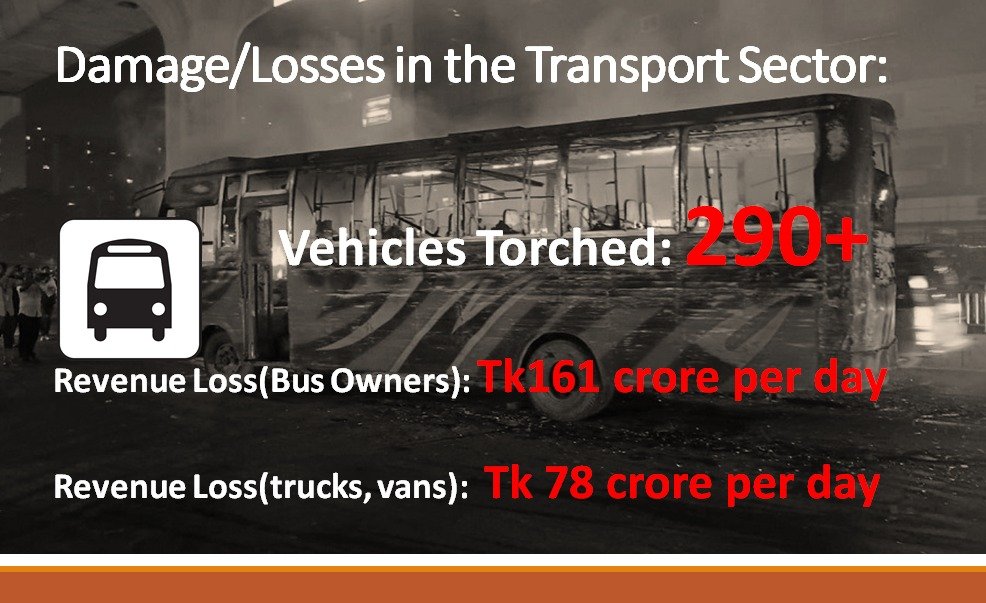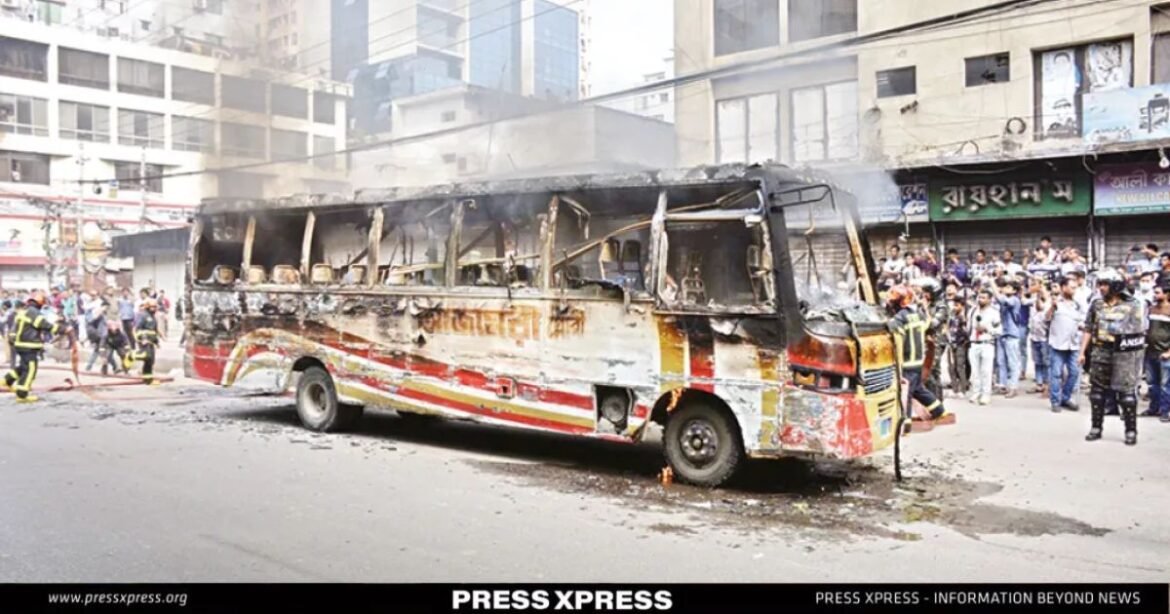The country grapples with economic challenges as high inflation takes a toll on the lives of ordinary people. Amidst these struggles, political turmoil in the form of hartals and blockades, orchestrated by the BNP-Jamaat alliance, further exacerbates the economic crisis.
You Can Also Read: BNP-Jamaat Can’t Derail Election Path
The repercussions of hartals extend beyond the political arena, bleeding into the very fabric of the nation’s economy. These strikes force a grinding halt or total shutdown in productive activities, such as transportation and industrial production. The consequences are dire as imports and exports suffer, disrupting the supply chain and raising the prices of essential commodities due to supply disruptions.
Economic Losses Exceeding Tk 6,500 Crore
Mahfuz Kabir, a Senior Research Fellow and Economist at the Bangladesh Institute of International and Strategic Studies (BIISS), underscores the economic damage caused by these strikes. Historical analysis reveals that a one-day hartal called by the BNP results in losses exceeding Tk 6,500 crore per day for the country’s economy. Wholesale and retail businesses, particularly in the domestic market, bear the immediate brunt, with the garment industry among the export sectors facing significant losses.
Hartals and blockades disrupt the logistics of domestic goods and services, leading to a shrinkage in supplies and, subsequently, an increase in prices. In a nation already grappling with increased prices due to global events like the war in Ukraine, the added burden only exacerbates the economic challenges faced by ordinary citizens. The fact that many of the effected people rely on day to day earnings to support themselves means that during hartal/blockade, their earning quota is hampered, further aggravating their situation.
Severe Blow to Export-Oriented Industries
The RMG market earned a staggering $45 billion dollars in 2022, it is a vital sector of the nation, employing millions of workers. Guaranteed minimum wages and a mature and stable export market makes the RMG sector a crucial lifeline in Bangladesh’s economy. The large Ready-Made Garments (RMG) industry, crucial for Bangladesh’s exports, faces severe setbacks. RMG Clients have strict conditions regarding deadlines. Failure by exporters to timely deliver finished products experience cancellations of entire orders due to delays caused by hartals. This jeopardizes the competitiveness of the sector in the global market, opening opportunities for competing nations like Vietnam to grab Bangladesh’s share in the global RMG market.,
Transport Sector’s Struggles: Target of BNP-Jamaat’s Wrath

The transport sector, a vital lifeline of the nation, has consistently been in the crosshairs of the BNP-Jamaat alliance. Nearly 300 vehicles have been targeted since October 28th, resulting in substantial losses for the sector. The lives of transport workers are put at risk, and the financial losses for bus owners and workers amount to Tk161 crore per day due to reduced trips.
Hartals and blockades have crippled the transport sector, with only a fraction of vehicles currently in operation. According to Mahbubur Rahman, vice president of the Bangladesh Road Transport Owners’ Association, a mere 20% of buses are operational nationwide, including the capital. This scarcity not only affects the livelihoods of those in the transport sector but also amplifies the economic challenges faced by the nation. It increases transport costs, reduced the efficiency of the transport sector and creates “supply chain bottlenecks” and delays in the transport of essential goods and services.
BNP’s Scorched Earth Policy: A Threat to Stability
A political party’s primary mission is to serve the people, yet the BNP’s scorched earth policy deviates sharply from this objective. Their campaign of violence, including arson and vandalism, has caused extensive infrastructure damage, harmed the economy, and led to an exponential rise in the prices of goods and services. This destructive approach not only jeopardizes our largest export industry but also threatens the livelihoods of millions of innocent Bangladeshi civilians.
Undermining Economic Progress and Democratic Continuity
The consequences of the BNP’s actions extend beyond immediate economic losses. The scorched earth policy poses a significant threat to more than a decade of economic progress, derailing democratic continuity. By analyzing the overarching impact of these acts of violence, it becomes evident that the BNP’s actions pose a severe and imminent threat to the nation’s stability.
The acts of violence orchestrated by the BNP-Jamaat alliance go beyond mere political turmoil; they have far-reaching implications for the economy, democratic continuity, and the lives of ordinary citizens. The nation must address these challenges collectively to safeguard its stability and progress.


